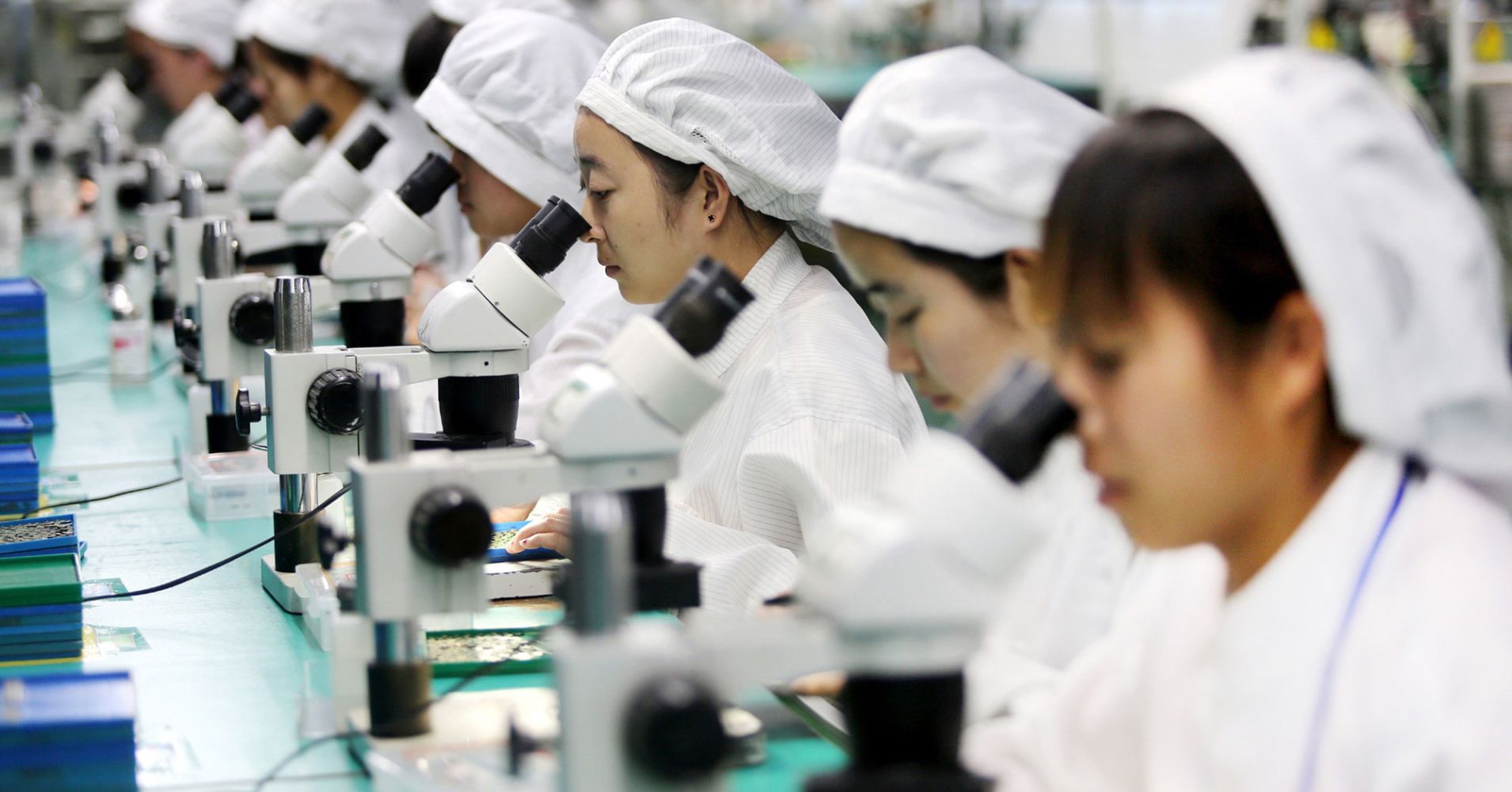
Key consumer tech products have so far mostly escaped the heat of the ongoing trade war. But if U.S. President Donald Trump makes good on his threat to impose tariffs on the full range of Chinese imports into his country, it could hit that sector hard, experts said.
Rajiv Biswas, Asia Pacific chief economist at IHS Markit, said that products such as mobile phones and smart watches and other wearable devices could be targeted in the next round, while ANZ Greater China Chief Economist Raymond Yeung pointed to mobile phones as well as other consumer goods.
“If the US Administration imposes a third tranche of tariff measures on a further USD267 billion of Chinese exports, this will significantly ramp up the economic shock waves to Chinese exporters,” Biswas told CNBC in an email.
Apple said earlier this month that the tariffs could affect the Apple Watch and AirPods as well as adapters and chargers for a host of products. But according to the latest list of tariffs that kicked in this week, they have been spared so far.
Autos is another sector that could continue to be targeted, said Carol Liao, a senior China economist at J.P. Morgan.
According to ANZ, key items at stake include consumer goods, which form 45 percent of China’s exports to the U.S., and autos, which is at 4 percent.
The next round of tariffs, according to Biswas, would likely hit large multinational companies producing goods in China for export, as well as Chinese small and medium-sized enterprises that are part of the global supply chain.
Automakers are already feeling the heat, with Trump slapping a 25 percent levy on China-made autos, in July. Ford scrapped a plan to sell its new Chinese-made Focus Active crossover model in the U.S., while Volvo moved the production of its XC60 crossover from China to Sweden. General Motors, meanwhile, sought an exemption for its Buick Envision model, also made in China.
Trump’s administration levied tariffs of 10 percent on $200 billion of Chinese products this week, and that’s set to increase to 25 percent on Jan. 1 2019. In response, China said it would impose taxes on U.S. imports worth about $60 billion.
Trump had said any retaliatory action from China would prompt Washington to “immediately pursue phase three, which is tariffs on approximately $267 billion of additional imports.”
China is limited in the amount of retaliatory tariffs it can apply simply because it doesn’t import as much in American goods compared with the amount the U.S. imports in Chinese products. Asia’s largest economy imported just $129.9 billion from the U.S. in 2017, compared with $505.5 billion in exports.
Before this week’s moves, the U.S. and China had already applied tariffs to $50 billion of each other’s goods.
While the economic impact on China could still be manageable if the U.S. imposes tariffs on all Chinese imports, rising unemployment could be a result, according to a recent report from J.P. Morgan.
The bank estimated that China could lose as many as 3 million jobs if it does not have any countermeasures to the next round of tariffs. J.P. Morgan said the loss in employment could be reduced to 700,000 jobs if the country imposes retaliatory tariffs — and assuming that the yuan depreciates 5 percent.
Biswas added: “As (multinational corporations) readjust their supply chains for exports to the US market to production hubs outside of China, Chinese (small and medium-sized enterprises) are facing weakening new manufacturing orders and job losses.”

